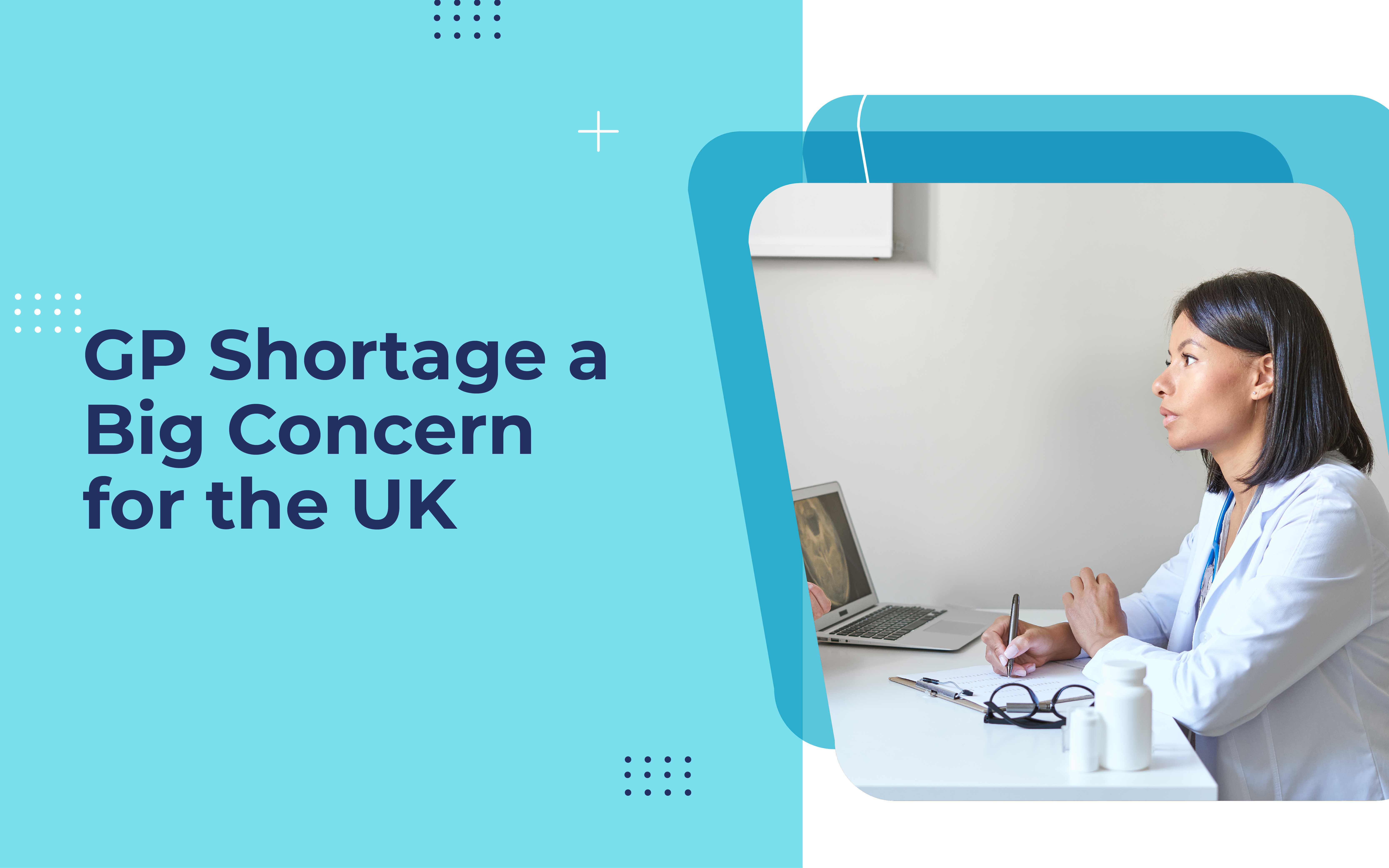
6 Jul 2022
GP Shortage a Big Concern for the UK
A Health Foundation study reveals that we currently have a shortfall of around 4,200 GPs across the UK, and that this is likely to rise to more than 10,000 in the next 10 years. An article by BBC explains “The government has promised to recruit 6,000 extra GPs by 2024. But ministers have admitted they are struggling to achieve that.” According to the report, “the analysis said the numbers entering the profession are on the rise, but this will be offset by GPs retiring or moving towards part-time working, according to current trends.” The demand for GPs is also rising due to an ageing population, contributing to the ever-increasing shortfall.
Overworked GPs Feeling the Strain
One big issue is that GPs are being completely overloaded are leaving their positions due to the stress and poor working conditions. "It's critical that government takes action to protect general practice and avoid it getting locked in a vicious cycle of rising workload driving staff to leave, in turn creating more pressure on remaining staff and fueling even more departures," says Prof Martin Marshall, chairman of the Royal College of GPs.
What Does the Shortfall Mean?
Fewer doctors and a higher demand for appointments means longer waiting times to see or speak to a GP. This is problematic for many reasons including early diagnoses of diseases such as cancer, diabetes, and dementia, and access to other services that require a GP referral.
An article by The Guardian discusses some of the problems we’re facing. “General practitioners are the gateway to many NHS services. They are often the first port of call for people with symptoms of cancer and dementia, for those experiencing issues with their mental health and a range of other problems that can get much worse without treatment. Health outcomes cannot be improved without encouraging more people to go to their GP when they feel unwell.” But with 69% of Britons lacking confidence that they will be able to see a GP when they need to, and 9 out of 10 saying waiting times for non-emergency care and treatment are too long, early diagnoses, referrals, and treatment could become increasingly more difficult to obtain.
It’s Not Just GPs We’re Short Of
As well as the GP shortfall, we should also be concerned about the number of GP nurses according to the BBC. “The number of GP nurses is unlikely to increase, although the drive to recruit other health professionals into general practice, such as pharmacists and physios, will provide a boost.”
We are also seeing extremely low numbers of NHS dentists with some parts of the country experiencing waiting lists as long as three years. Sky news reported that individuals in excruciating pain are resorting to drastic measures such as pulling out their own teeth as they simply cannot afford to pay for private dental work.
Is There a Plan to Tackle the Problem?
The government have been criticized for their failure to train and recruit enough doctors in recent years. “Data show that England has lost almost 1,600 FTE GPs since former health secretary Jeremy Hunt first pledged to boost the workforce by 5,000 doctors in 2015,” says GP Online. Even pre-pandemic, waiting lists were incredibly long and growing, but the government is yet to directly address the issue or offer any sort of solution. Concern is growing that things are only set to get worse and that if the government doesn’t act soon, we’ll be in a critical position in the coming years.




